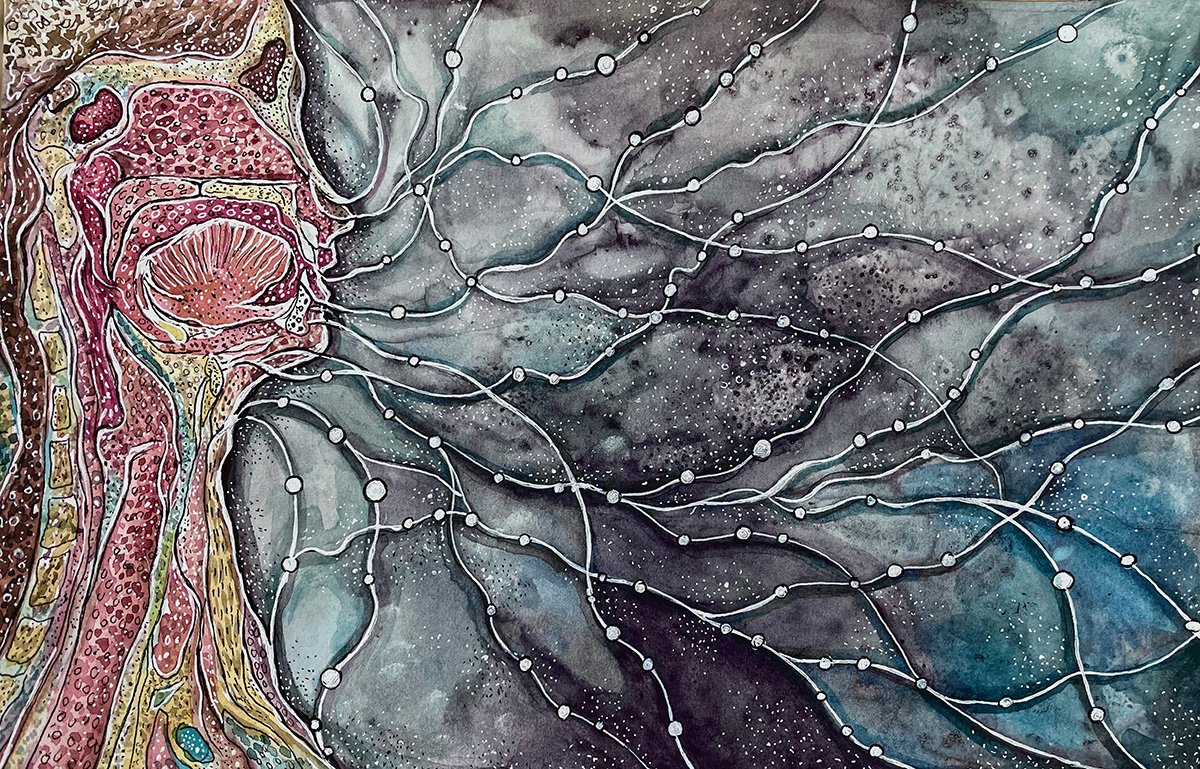Alumna Update: Shabani Hassanwalia
Shabani Hassanwalia is a 2009 Inlaks Scholar. She attended an internship for global documentary commissioning & viewership models & their application in India at The Sundance Institute, Los Angeles.
She is a filmmaker and the co-Founder of Hit and Run Films in New Delhi. She is also the chief editor at The Third Eye, a feminist think tank and publishing platform.
In this week’s post she write about how the locus of power can be shifted and the stories of those who have been historically marginalized can be enabled to tell their stories and not just be the subjects of them.
Devika Sundar for The Third Eye
Like many other modern Indian women born a hot minute before the neo-liberal, technology revolution, who studied where they wanted to, wore what they wanted to, had jobs that would make their aunts ask ‘You get paid for that?’, and loved (more or less) in ways they wanted to, I didn’t call myself a feminist.
I was standing on the shoulders of giants; generations of women who had pushed the needle, little by little, over centuries. And yet, I spent a decade of adventuring thinking we are the first.
We are not the first. But women’s histories are our best kept secret.
**
About 15 years ago, I was doing a camera and video workshop with a group of teenaged Muslim girls in UP heartland, Banda. This was for Nirantar – an NGO that’s worked on gender and education for three decades, and are behind the now famous Khabar Lahariya, the only media channel run by rural women of marginalised caste locations.
At the time, Banda had rifle and gun shops cheek to jowl with the local kirane ki dukaan. The mosque was to the left of our sweaty workshop hall, and the Kali mandir to our right. Alternating between the azaan and the mandir ki ghanti, 15 girls who had never stepped out of Banda, and were ready to drop out of school, were discussing focus and aperture. The time came when I asked them to now step out of their rooms and go out into the streets with the camera and shoot something.
The girls shook in their printed tights. “Are you kidding?” they asked.
Big Fat Bao for The Third Eye
It took some cajoling, but 45 minutes later, Banda streets were taken over. With each passing minute, something shifted in the girls. Their backs became more upright to balance the camera, their eyes alert to the changing light, their legs rooted to the spot despite honking rickshaws. Within minutes, they were pointing the camera at men. In that second, there was an electric exchange of power.
And in Banda streets, something had shifted forever.
**
What does it mean to run a feminist think tank? It’s a way to do such large scale ‘experiments’ if you please, in which we can shift the locus of power.
It’s a way to produce knowledge by putting the margins at the centre, and watch what seams may open, what may tumble out.
It’s where we document those secret histories, of folx who came before us and challenged mainstream hegemonies, but their story didn’t get written.
Aayna Vinaya for The Third Eye
It’s where we ask, that if power has to shift to those historically denied power, what would the world, society, and justice look like?
What would our stories and art look like?
And finally, it’s where we prepare a whole new cadre of knowledge producers with the tools of the digital, so that they can create their own knowledge and not just be subjects of research.
**
The Third Eye (TTE) is a feminist think tank that works on gender, sexuality, technology and education.
TTE exists online as a bilingual publishing platform in English and Hindi, and offline as a site of praxis for grassroots knowledge production called The Learning Lab.
TTE is powered by three decades of Nirantar’s work knowledge creation and leadership development from a feminist standpoint.
The Third Eye creates materials in English and Hindi in the digital domain, and features global and regional research, narratives, stories and art. It brings to life undocumented theories, practices, oral histories, and knowledge rooted in community-based work.
Bakery Prasad for The Third Eye
As part of its Learning Lab, TTE co-creates with those often overlooked or invisibilized as knowledge producers, enabling them to author their own experiences. It aims to repopulate the interwebs with voices and standpoints that are typically written about, but do not usually write or speak for themselves.
The Third Eye is the first of its kind initiative in South Asia working with an intensive mentorship methodology rooted in feminist principles. It enables a new cadre of people to influence their social and digital ecosystems, and drive narrative change.
Some of the flagship productions include Raat: Night Time in Small Town India, a documentary by 14 filmmakers from five districts in North India. It won the Gender Sensitivity Award at the Dharamsala International Film Festival and has played at Kerala, and is currently at the New York Indian Film Festival.
TTE has been live since November 2020, and has published over 195 original pieces in English and Hindi in text, video and audio. In its four editions to date – Work, City, Public Health, Education – it is hoping to build a feminist view of the world, a world where joy and justice may co-exist.
Please do come build it with us.
All materials on The Third Eye are open source, bilingual, and come under Creative Commons. We would like our audiences to adapt, repurpose and apply anything you like here to your own contexts, and share the experience back with us. This will help us further evolve a digital pedagogy that’s feminist and democratic. The Third Eye is fully accessible to people with disabilities.
Top Image: The Third Eye Mast Head










